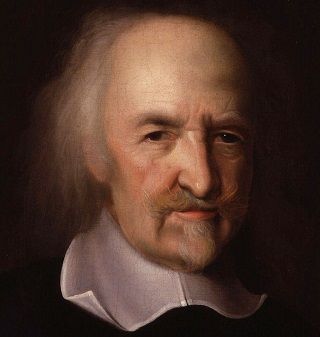Thomas Hobbes, Political Philosophy, and the Role of Government in Our Lives

Hobbes certainly was no idealist; in fact, he’s best known for his belief that the core of human life is so centered around greed, selfishness, and the passion to acquire wealth, through violence if need be, that we need to sacrifice a significant amount of our liberty and hand it over to a strong government, which we ask to protect us from one another.
This raises interesting questions about today’s civilization, even after the intervening centuries of evolution in the direction of human rights. In particular: Can our society survive without a government that reins in the conduct of individuals and the groups they form? For instance, in the absence of environmental laws and the teeth to enforce them, would a deregulated industrial/consumer society act so as to protect our natural resources and maintain clean air and water for future generations? Would the wealthiest and most powerful people operate fair and honest financial markets in a deregulated environment? I think the answer is pretty obvious: No.
Keep in mind that all this was before the bulk of the Enlightenment/Age of Reason, and all the figures who came along a little bit later: John Locke, David Hume, Thomas Jefferson, Benjamin Franklin, Thomas Paine, Jean-Jacques Rousseau, Voltaire, etc. whose work focused on refining the notion of liberty, government, property rights, etc. We’d all like to think, as Jefferson optimistically observed, “that government governs best that governs least,” though it’s clear how our present-day world would fare under these conditions—and, again, it wouldn’t be pretty.
